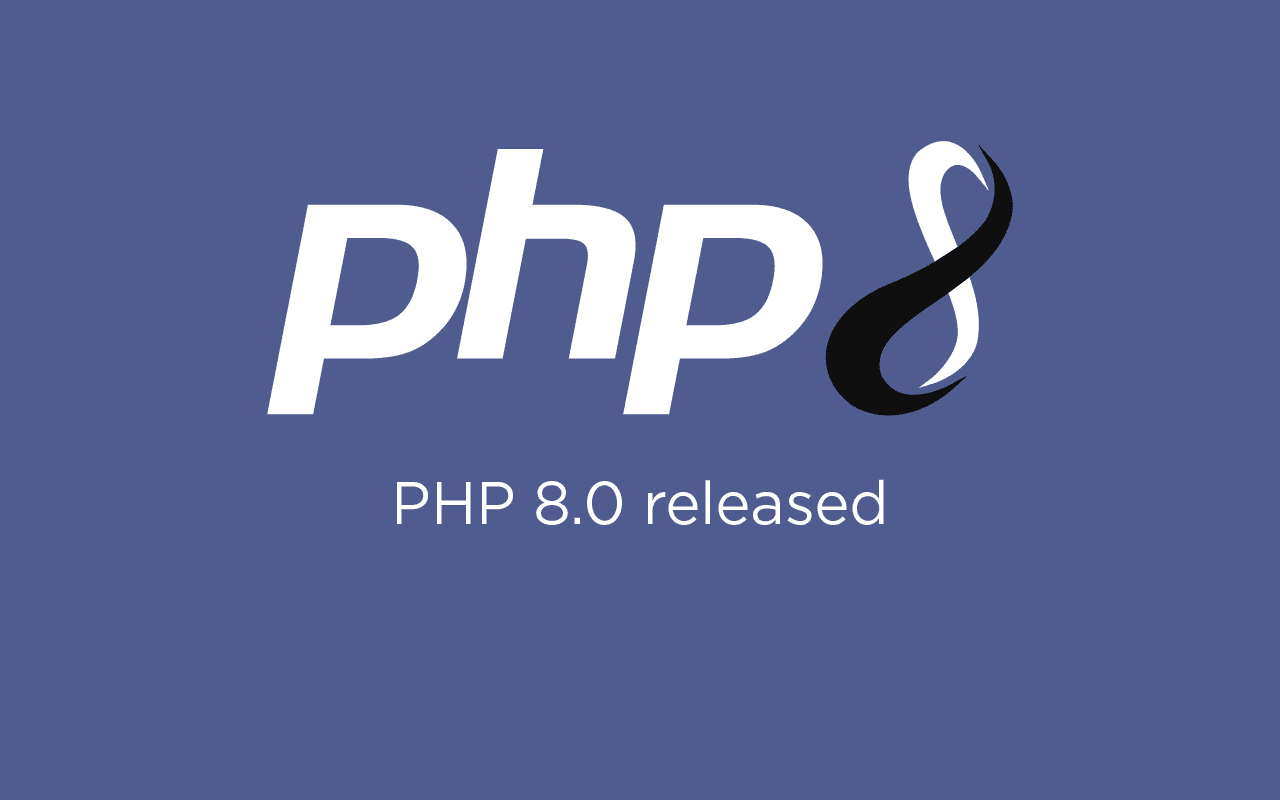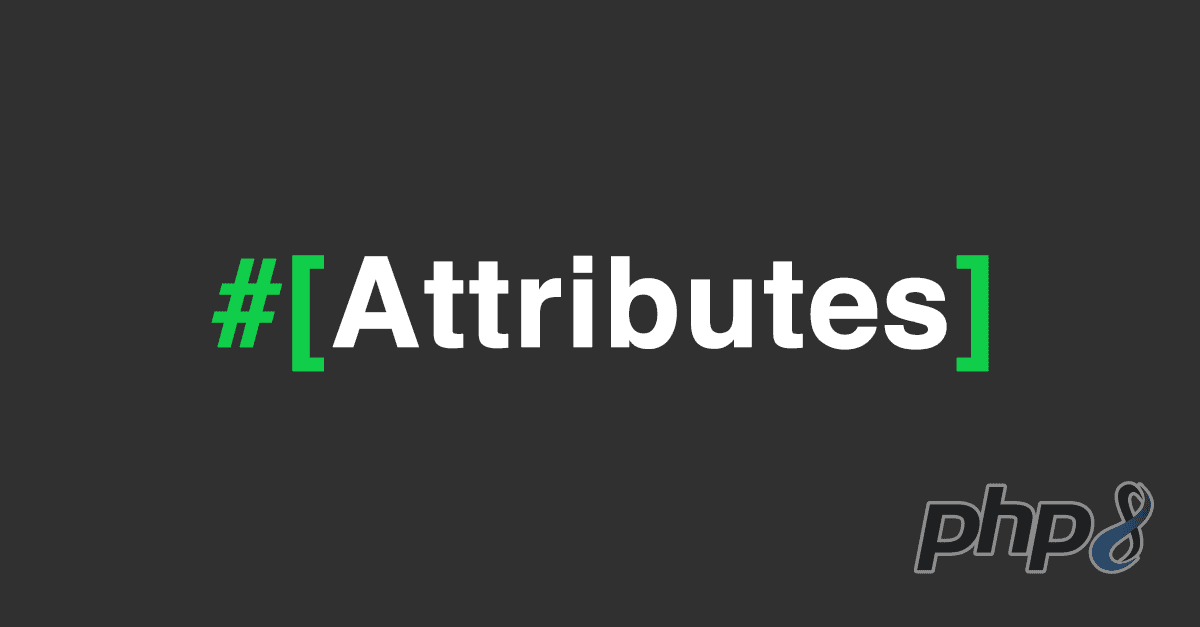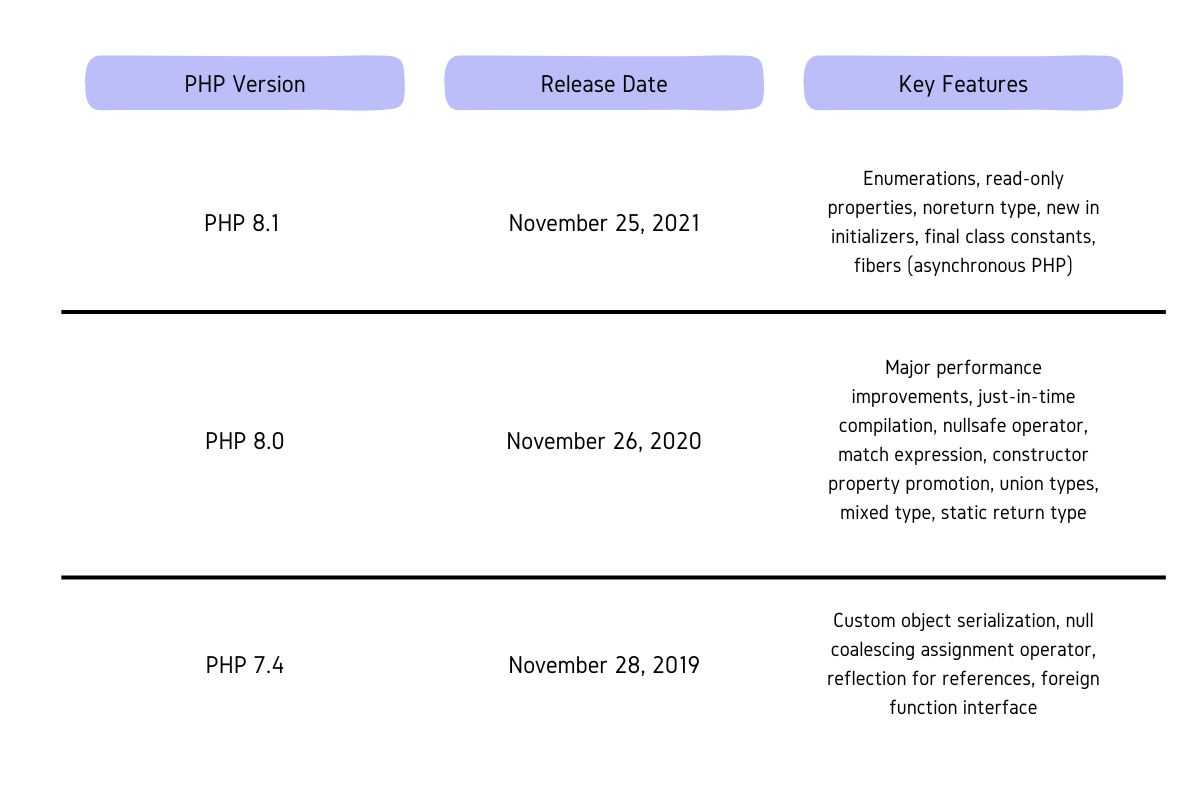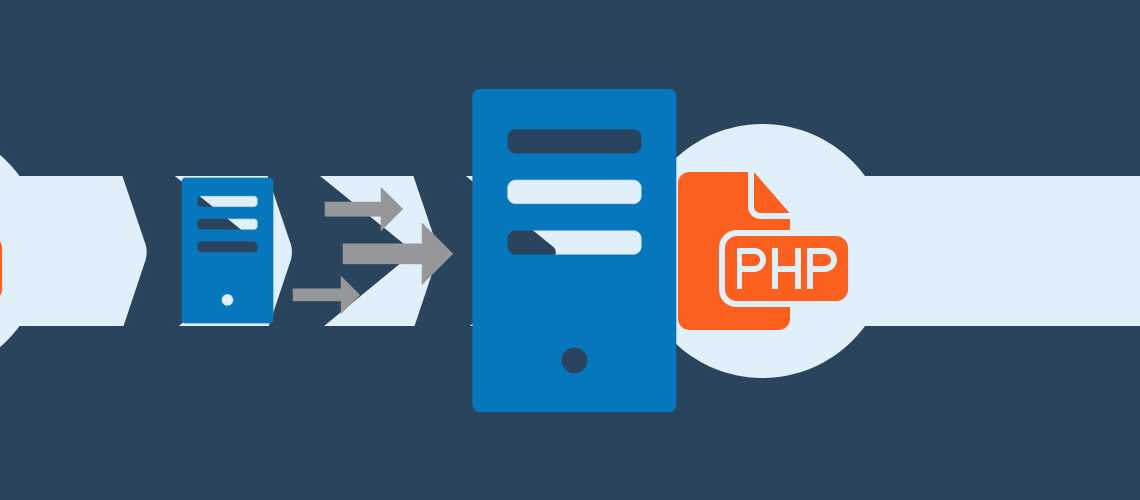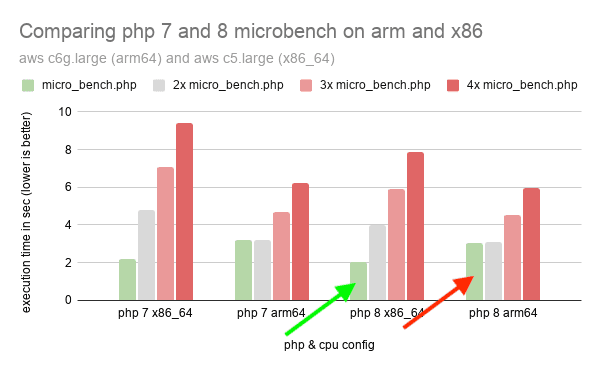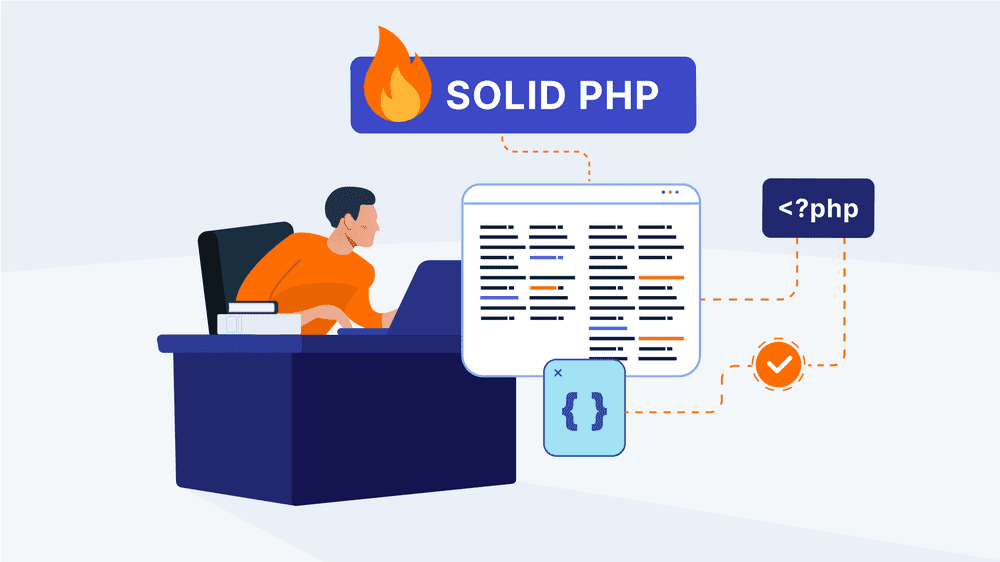PHP 8.x: A Deep Dive for General PHP Performance Improvement Features
As a passionate developer, I've been thrilled to witness PHP, the widely celebrated server-side scripting language, evolve over two decades.
Now, with the release of PHP 8.x, PHP's dominance as a powerful and reliable choice for developers around the world is stronger than ever. The PHP 8.x series, encompassing PHP 8.0, PHP 8.1, and as of November 2022 - PHP 8.2, unveils a plethora of enhancements and new features, but most notably, it delivers a substantial performance boost compared to its predecessors.
In this article, I'm excited to embark on a deep dive into the performance improvements and efficient processing that PHP 8.x brings to the table. By thoroughly examining and analyzing these cutting-edge enhancements, my goal is to offer fellow developers and tech enthusiasts invaluable insights into the key optimizations made in PHP 8.x.
This comprehensive exploration will empower you to fully grasp the benefits of embracing PHP 8.x and comprehend its potential impact on your web applications and the overall PHP ecosystem. So, let's dive in and uncover the remarkable advancements PHP 8.x has in store for us.
PHP 8.x: A Brief Overview
The PHP 8.x series began with the release of PHP 8.0 on November 26, 2020, followed by PHP 8.1 on November 25, 2021. These releases introduced several groundbreaking features, as well as substantial performance improvements, that have positively impacted the web development landscape.
Notable features in PHP 8.0 include the Just-In-Time (JIT) Compiler, attributes (also known as annotations), named arguments, the nullsafe operator, and match expressions. PHP 8.1 continued to build upon the solid foundation laid by PHP 8.0, introducing new features such as enums, readonly properties, fibers (for better concurrency support), and new syntax improvements like array unpacking with string keys and first-class callables.
PHP 8.2 introduces a number of new features, including:
- Improved performance: PHP 8.2 is significantly faster than previous versions, thanks to a number of performance improvements, including a new garbage collector and a new optimizer.
-
New features: PHP 8.2 introduces a number of new features, including:
- Co-routines: Co-routines are a new feature that allows PHP developers to write concurrent code without the need for threads.
- Union types: Union types are a new feature that allows PHP developers to define a variable that can hold any of a set of types.
- Improved error handling: PHP 8.2 introduces a number of improvements to error handling, including better error messages and the ability to handle errors more gracefully.
Attributes (Annotations)
In PHP 8.x, attributes have replaced the less efficient and error-prone docblock annotations for adding metadata, significantly impacting PHP performance. By providing native support for attributes, PHP 8.x ensures their validation during the compile-time, eliminating runtime issues that may stem from incorrect metadata.
This standardized methodology encourages the PHP community to embrace best practices for metadata and process management, which ultimately enhances overall PHP performance and the efficiency of web server applications.
Furthermore, attributes promote improved integration with various development tools, monitoring tools and frameworks due to their standardized approach to metadata extraction. This enables enhanced support from IDEs, static analyzers, and other development tools, optimizing PHP performance and enriching the development experience.
As a result, attributes not only boost the quality of PHP code but also foster a more efficient and streamlined development process, leading to better-performing PHP applications on web servers.
Consider a simple use case of validating user input in a web application. Previously, developers would use docblock annotations to provide metadata about validation rules, which were then parsed at runtime.
This could lead to performance overhead and potential runtime errors. With PHP 8.x attributes, developers can now add metadata directly to the code, which is validated during compile-time.
Here's an example comparing the old docblock annotation method and the new attributes method:
Using Docblock Annotations (PHP 7.x and earlier):
/**
* @ValidationRule("email")
* @ValidationMessage("Please enter a valid email address.")
*/
class EmailValidator {
// ...
}Using Attributes (PHP 8.x):
use App\Validation\ValidationRule;
use App\Validation\ValidationMessage;
#[ValidationRule("email")]
#[ValidationMessage("Please enter a valid email address.")]
class EmailValidator {
// ...
}In the example above, the PHP 8.x attribute-based approach provides a cleaner and more efficient way of adding metadata to the EmailValidator class. By leveraging attributes, developers can eliminate the runtime overhead associated with parsing docblock annotations, resulting in better PHP performance and more efficient web server applications.
Named Arguments
Named arguments in PHP 8.x offer a level of flexibility that significantly impacts PHP performance when it comes to modifying or extending functions. By explicitly naming the arguments, developers can easily add, remove, or change the order of parameters without breaking the existing PHP code.
This encourages code reusability and modular design, as well as simplifying the understanding of each argument's purpose. Ultimately, named arguments contribute to a more maintainable and efficient PHP codebase, boosting PHP performance on web servers.
By utilizing named arguments, developers can create more expressive and self-documenting APIs, which is essential for PHP performance tuning. This feature facilitates the comprehension of complex functions, particularly when dealing with a large number of parameters, default values, or optional arguments.
Consequently, named arguments help reduce the cognitive load on developers, making it easier to write, review, and debug PHP code. This results in the development of more robust and efficient PHP applications, further enhancing PHP performance on web servers.
Without Named Arguments (PHP 7.x and earlier):
function sendEmail($to, $subject, $body, $from = '[email protected]', $isHtml = true) {
// ...
}
// Call the function without named arguments
sendEmail('[email protected]', 'Welcome', '<h1>Hello, John!</h1>', '[email protected]', true);With Named Arguments (PHP 8.x):
function sendEmail($to, $subject, $body, $from = '[email protected]', $isHtml = true) {
// ...
}
// Call the function with named arguments, but skip the `from` and `isHtml` parameters
sendEmail(
to: '[email protected]',
subject: 'Welcome',
body: '<h1>Hello, John!</h1>'
);In this example, the from and isHtml parameters are skipped because they are not explicitly specified. The default values for these parameters will be used instead.
This is a great way to improve the readability and maintainability of your code. By using named arguments, you can make it clear which parameters are required and which ones are optional. This can help to reduce errors and make your code more reusable.
Here are some other things to keep in mind when using named arguments:
- Named arguments must be used after any positional arguments.
- You cannot use the same parameter name twice.
- If you do not specify a value for an optional parameter, the default value will be used.
- If you specify a value for an optional parameter, the default value will be ignored.
Nullsafe Operator
By simplifying the handling of nullable objects, the nullsafe operator allows developers to write more elegant and less error-prone PHP code, leading to enhanced PHP performance on web servers.
This can result in significant improvements as it reduces the amount of conditional logic needed to handle null values. PHP applications running on the latest PHP version can experience a reduced shared memory usage footprint and better execution times, further amplifying the benefits of this feature in PHP 8.x.
The nullsafe operator also encourages the adoption of a more consistent error handling approach in PHP applications, particularly when dealing with database queries and SQL queries. By promoting the use of nullable types and reducing the boilerplate code required for handling null values, developers can create cleaner and more maintainable codebases.
This consistent approach to handling nullable objects and null-related errors can lead to a more stable and performant application, as well as fostering a more unified coding style within the PHP community.
Without Nullsafe Operator (PHP 7.x and earlier):
class User {
public function getCompany() {
// Fetch company data from the database
}
}
$user = getUserFromDatabase();
if ($user !== null) {
$company = $user->getCompany();
if ($company !== null) {
$companyName = $company->name;
} else {
$companyName = 'Not available';
}
} else {
$companyName = 'User not found';
}
echo $companyName;With Nullsafe Operator (PHP 8.x):
class User {
public function getCompany() {
// Fetch company data from the database
}
}
$user = getUserFromDatabase();
$companyName = $user?->getCompany()?->name ?? 'Not available' ?: 'User not found';
echo $companyName;In the example above, the PHP 8.x nullsafe operator (?->) simplifies the handling of nullable objects and reduces the amount of conditional logic needed. This results in more elegant, readable, and maintainable code, contributing to better PHP performance on web servers.
Match Expressions
The introduction of match expressions in PHP 8.x enables developers to handle complex conditional logic in a more efficient and readable way, which can significantly improve PHP performance on web servers. By removing the need for break statements and offering exhaustive matching, the potential for human error is reduced.
Match expressions not only improve code readability but also allow for more advanced pattern-matching capabilities. With the addition of match expressions, developers can now express complex conditionals and pattern matching in a more concise and elegant manner.
This can lead to more maintainable code, as developers can easily comprehend and modify complex logic without getting lost in a sea of if-else statements or switch cases. As a result, match expressions contribute to the overall efficiency and performance of PHP web applications.
Enums
With a focus on improving PHP performance, the introduction of enums in PHP 8.1 offers significant advantages in code readability, maintainability, and efficiency for web applications running on web servers.
By replacing string or constant values with enums, developers can reduce shared memory usage and improve the speed of value comparisons, which leads to more efficient code execution and ultimately boosts PHP performance for web applications.
The introduction of enums in the latest PHP version also enables developers to create more meaningful and expressive APIs, which can improve communication and collaboration within development teams.
Enums serve as a form of documentation, making it easier for developers to understand the expected values and their purpose. By incorporating enums into their codebase, developers can reduce the likelihood of misinterpretation and mistakes, further enhancing application performance and the overall reliability of PHP web applications.
Readonly Properties
Focusing on PHP performance, the implementation of readonly properties in PHP applications running on web servers allows developers to avoid the performance overhead associated with mutable state management.
By enforcing immutability, reasoning about the behavior of objects in a codebase becomes simpler, helping to minimize bugs and improve code maintainability. Consequently, readonly properties contribute to more stable and performant web applications.
Incorporating readonly properties into PHP applications can also enhance the security of native PHP functions and the handling of database queries and processing time. By enforcing immutability, developers can reduce the risk of unauthorized modifications to class properties, which may help protect against certain types of vulnerabilities.
Furthermore, readonly properties help establish clear boundaries and contracts between different components of a web application, promoting a more modular and secure codebase. This, in turn, results in better performance and stability for PHP web applications.
Fibers
Emphasizing PHP performance, the introduction of fibers in PHP 8.x marks a significant change in managing concurrency for PHP applications running on web servers. The lightweight nature of fibers, compared to traditional threading, minimizes the overhead associated with context switching.
This leads to better resource utilization and higher throughput, especially in web applications with high concurrency demands. By implementing fibers, developers can create more performant and scalable PHP applications, highlighting the advancements in PHP 8.x.
The adoption of fibers in PHP 8.x has the potential to transform how PHP developers manage concurrency and parallelism in web applications, including those that involve database queries and processing time.
With fibers, developers can build more responsive and efficient PHP applications that better utilize modern hardware resources, such as multi-core processors. Moreover, fibers enable a more accessible approach to asynchronous programming, appealing to a broader range of developers.
Consequently, fibers play a crucial role in the development of more performant, scalable, and maintainable PHP applications, showcasing the ongoing evolution of the PHP ecosystem.
Array Unpacking with String Keys and First-Class Callables
These syntax improvements simplify and streamline application code by allowing developers to perform array operations and manipulate callables more efficiently. These features contribute to better code readability and maintainability.
These improvements not only benefit end users through faster load times and reduced latency but also lead to reduced server resource consumption and cost savings for businesses and organizations. Overall, these features contribute to making PHP 8.x a more powerful, expressive, and efficient choice for web developers.
The focus on performance improvements in PHP 8.x can be traced back to the need for faster and more efficient web applications. With the rapid growth of the internet and increasing user expectations, developers have been seeking ways to optimize their applications' performance.
PHP 8.x addresses this demand by providing numerous optimizations at the language level, allowing developers to deliver faster and more responsive web applications without the need for extensive application code refactoring. These improvements not only benefit the end users but also result in reduced server resource consumption, ultimately leading to cost savings for businesses and organizations.
Just-In-Time (JIT) Compiler
The Just-In-Time (JIT) Compiler is one of the most significant performance improvement features introduced in PHP 8.x. As a key component of the PHP 8.0 release, the JIT Compiler aims to enhance the execution speed of PHP scripts, making it a game-changer for the language's performance.
The JIT Compiler works by converting frequently executed parts of PHP code into machine code during runtime, as opposed to the traditional approach of interpreting PHP code on-the-fly. This compiled machine code can be executed much faster than interpreted code, resulting in substantial performance gains.
The JIT Compiler operates in two modes: the function and the tracing JIT. The function JIT compiles whole functions, while the tracing JIT compiles smaller code paths that are executed frequently.
To understand the impact of the JIT Compiler on real-world applications, it is essential to recognize that not all PHP applications will see the same degree of performance improvement. The JIT Compiler's benefits become more apparent in CPU-intensive tasks, such as mathematical calculations, image processing, and complex data manipulation.
For many typical web applications, the performance improvements may be less pronounced, as these applications are often I/O-bound, meaning that the bottlenecks are related to input/output operations like database queries and file system access, rather than CPU-bound tasks.
However, the JIT Compiler's introduction still has the potential to unlock new possibilities for PHP in other domains and improve performance. For example, PHP may become a more viable option for high-performance computing, machine learning, and real-time applications, where the increased execution speed can have a significant impact.
Optimized Function Calls and Type Declarations
In PHP 8.x, several improvements have been made to function calls and type declarations, contributing to enhanced performance and more efficient code execution when developing PHP applications for web servers and web services. These optimizations include the following -
Faster Function Calls
PHP 8.x has introduced more efficient type checking for both internal and user-defined functions. This improvement is achieved through better handling of type checks during the compilation phase, which reduces the overhead associated with runtime type checks. Additionally, PHP 8.x has optimized the way union types are checked, leading to further performance gains.
These enhancements in type checking contribute to the overall performance of PHP applications, helping to eliminate potential bottlenecks and performance issues that may arise from inefficient type handling.
Furthermore, improved type checking can lead to a reduced database load, slow queries and better business logic, as it ensures that only valid data is being processed and stored, resulting in more efficient database operations and SQL queries.
By focusing on type checking optimization, PHP 8.x enables developers to fine-tune PHP performance and create more robust and efficient applications that can better handle the demands of modern web servers and dynamic web pages.
Improved Type Checking
In PHP version 8.x, the introduction of more efficient type checking for both internal and user-defined functions has led to significant performance improvements. By optimizing type checks during the compilation phase, PHP 8.x also reduces the overhead associated with runtime type checks, while also enhancing the handling of union types. These enhancements contribute to better overall application performance, which is crucial for web applications that require fast load times and responsiveness.
Improved type checking helps to eliminate potential bottlenecks and performance issues that may arise from inefficient type handling, leading to more stable and efficient web applications. Additionally, this optimization ensures that only valid data is processed and stored, which in turn results in more efficient database operations and reduced page load times.
With the focus on type checking optimization, PHP 8.x provides developers with the tools to fine-tune their application's performance and create more robust and efficient web applications. This is particularly beneficial in the context of performance benchmarking, as it allows developers to accurately measure and compare the performance of their applications against industry standards or competitors.
By utilizing these performance improvements, developers can write code faster and build web applications that better meet the demands of modern web servers and deliver an improved user experience.
Named Arguments
Named arguments, introduced in PHP versions 8.x and onwards, offer benefits beyond improved code optimization and readability. They can also contribute to performance optimizations in certain scenarios. By using named arguments, developers can skip unnecessary arguments when calling a function, thus reducing the amount of data that needs to be processed.
These optimizations lead to enhanced performance by minimizing the overhead associated with function calls and type declarations. By optimizing these fundamental aspects of the language, PHP 8.x can execute code more efficiently, resulting in faster load times and improved overall performance for web applications.
The impact of these improvements on real-world applications depends on specific use cases and coding practices. Applications with a high number of function calls and extensive use of type declarations are likely to experience more significant performance gains.
In general, these optimizations contribute to a more responsive and efficient user experience, as well as reduced server resource consumption, benefiting both end users and businesses by addressing performance bottlenecks and enhancing application performance on web servers.
PHP 8.x Compatibility and Migration
Migrating to PHP versions 8.x and onwards from older versions can provide significant performance improvements, but developers may also encounter compatibility challenges due to deprecated features, changes in function behavior, or the introduction of new syntax and features.
To ensure a smooth migration process, developers should be aware of these potential issues and adopt best practices to minimize disruptions. Here is a comprehensive list of things to be aware of when migrating to PHP 8.x.
1. Removed Extensions and Functions
PHP versions 8.x and onwards has removed several extensions and functions that were either deprecated or had better alternatives available. These removals can lead to compatibility issues if your code relies on them. For example, the ext/ereg extension has been removed in favor of the more efficient ext/pcre extension.
Be prepared to refactor your code for code optimization to use the updated functions or alternatives.
Removed Extensions and Functions Example:
The createfunction() function has been removed in PHP 8.x. If you have code that uses createfunction(), you need to refactor it to use anonymous functions (closures) instead.
// Old code using create_function()
$func = create_function('$x', 'return $x $x;');
echo $func(5); // Output: 25
// Updated code using an anonymous function
$func = function($x) {
return $x $x;
};
echo $func(5); // Output: 252. Changes in Error Reporting and Handling
PHP 8.x has introduced changes in error reporting and handling, converting many runtime notices, warnings, and errors into more severe exceptions. This change means that previously silenced issues in your code may now lead to unhandled exceptions, causing your PHP application to behave unexpectedly or terminate prematurely. Review your error handling and logging strategies to ensure they are compatible with PHP 8.x.
Changes in Error Reporting and Handling Example:
In PHP 8.x, passing too few arguments to a function will now throw a TypeError exception instead of a warning. To handle this change, you should update your error handling code to catch TypeError exceptions.
function add($a, $b) {
return $a + $b;
}
try {
echo add(5); // Throws a TypeError exception in PHP 8.x
} catch (TypeError $e) {
echo "Error: " . $e->getMessage();
}3. Incompatible Changes in Core Classes
PHP 8.x has introduced changes to several core classes, which may cause compatibility issues. For example, the Serializable interface has been deprecated and replaced by the serialize() and unserialize() magic methods. If your code relies on classes that implement the Serializable interface, you will need to update them accordingly.
Incompatible Changes in Core Classes Example:
As mentioned earlier, the Serializable interface has been deprecated. If you have a class that implements this interface, you should update it to use the serialize() and unserialize() magic methods.
// Old code using Serializable interface
class MyClass implements Serializable {
// ...
public function serialize() {
// ...
}
public function unserialize($data) {
// ...
}
}// Updated code using serialize() and unserialize() magic methods
class MyClass {
// ...
public function serialize(): array {
// ...
}
public function unserialize(array $data): void {
// ...
}
}4. Changes in Function and Method Signatures
Some functions and methods in PHP 8.x have updated signatures, which may cause compatibility issues if your code relies on the old signatures.
For instance, PHP 8.0 introduced changes in the signatures of various methods in the Reflection API, such as the ReflectionMethod::invoke() method. Be prepared to update your code to comply with the new function and method signatures.
Changes in Function and Method Signatures Example:
The ReflectionParameter::getClass() method has been deprecated in PHP 8.x, and you should use the ReflectionParameter::getType() method instead.
function foo(ReflectionParameter $param) {
// Old code using getClass()
$class = $param->getClass();
// Updated code using getType()
$type = $param->getType();
if ($type instanceof ReflectionNamedType) {
$class = $type->getName();
}
}5. Changes in Default Behavior
PHP 8.x has changed the default behavior of some functions and features, which may lead to compatibility issues.
For example, the default error reporting level has been changed to include all errors, notices, and warnings. This change may cause unexpected behavior in your code if you rely on the previous default error reporting level.
Changes in Default Behavior Example:
In PHP 8.x, the strip_tags() function now removes leading and trailing whitespace from the input string by default. If your code relies on the previous behavior, you may need to adjust it accordingly.
$input = " <b> Hello, World! </b> ";
$output = strip_tags($input);
echo $output; // Output in PHP 8.x: "Hello, World!"6. Changes in Language Constructs
PHP 8.x has introduced changes to some language constructs, which may cause compatibility issues.
For instance, the "switch" construct now supports strict type checking, which may lead to type errors if your code does not adhere to the new requirements. Be prepared to update your code to comply with the changes in language constructs.
Changes in Language Constructs Example:
In PHP 8.x, the "switch" construct uses strict type checking, which means that non-identical types will no longer match. Update your code to use strict types, or explicitly cast the values to the desired type.
$number = "42"; // String
// Old code: PHP 7.x would match this case
switch ($number) {
case 42:
echo "Matched!";
break;
default:
echo "Not matched!";
}// Updated code: PHP 8.x requires strict types or explicit casting
switch ((int) $number) {
case 42:
echo "Matched!";
break;
default:
echo "Not matched!";
}Source FraudMarc: Performance comparison between PHP 7 and PHP 8
The Road Ahead: Embracing PHP 8.x's Better Performance
PHP 8.x has introduced numerous performance improvements that make it a powerful tool for web development. You can almost use the contents of this article as a php performance tuning tips guide.
The Just-In-Time (JIT) Compiler, optimized function calls, and type declarations contribute to faster and more efficient web applications, while new language features like named arguments, attributes, and match expressions offer enhanced performance and readability.
Migrating to PHP 8.x also requires addressing potential compatibility issues, such as removed extensions and functions, changes in error reporting and handling, updates to core classes, and alterations in function and method signatures, default behavior, and language constructs. Careful planning and following best practices can ensure a smooth transition and help developers take full advantage of PHP 8.x's performance enhancements.
If you're considering migrating to PHP 8.x or want to optimize your existing PHP application, Accesto can help. Our team of experts specializes in tuning web performance key metrics, scaling web applications, lowering development costs, shortening time to market, improving user experience, securing web applications, ensuring quality and reliability, and maintaining web products.
Let us assist you in transforming your PHP application to meet your users' demands and stay ahead of the competition. Contact Accesto today to discuss your project and experience the benefits of PHP 8.x.
